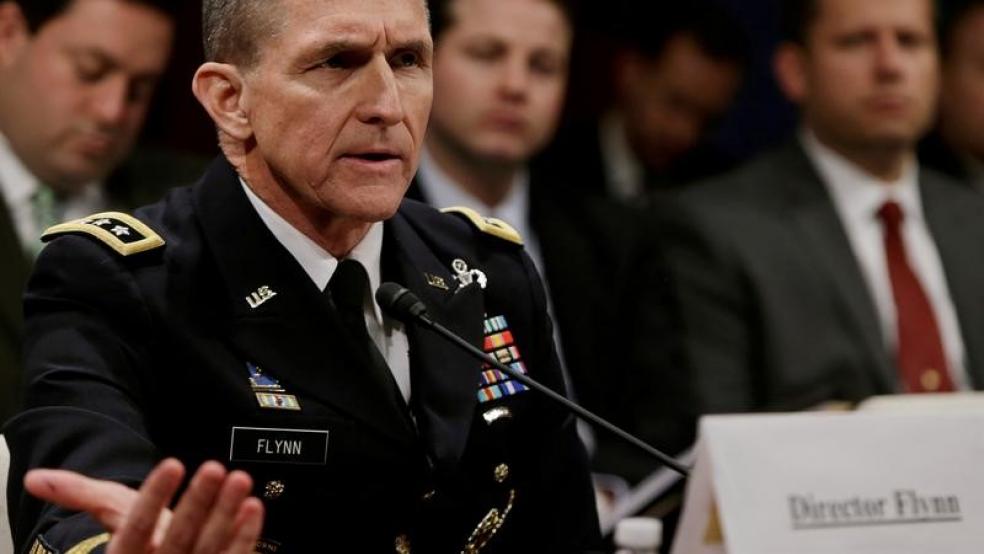In a media call Tuesday morning, Donald Trump’s transition team spokesman, Jason Miller, was asked how the president-elect stays up to date on national security issues, given that by his own admission he isn’t interested in taking daily security briefings. Miller said that Trump is kept informed by the man he has designated to be his National Security Adviser, retired Army general Michael Flynn.
While there would normally be nothing surprising about a soon-to-be National Security Adviser briefing a president-elect, there is very little that’s normal about the incoming Trump administration, and Flynn is no exception. The former head of the Defense Intelligence Agency, Flynn was forced out of the job amid reports of a chaotic management style and an unwillingness to listen to dissenting voices.
Related: Why the Russia Hacking Scandal Could Cost Trump His Pick for Secretary of State
Since then, he has become a vocal critic of the U.S. intelligence establishment, particularly the Central Intelligence Agency, which he claims has become highly politicized and has strayed from its role as a strictly apolitical agency.
On its face, Flynn’s history seems to leave him ill-suited for the NSA role. The job requires a willingness to not just tolerate facts and opinions that don’t mesh with one’s own, but to embrace them as part of an effort to gather the fullest possible picture of threats facing the country. And it would seem to go without saying that having at least minimal respect for the agencies making up the Intelligence Community is a prerequisite for the job. (Flynn also has unusual connections to the Russian government, having accepted payment from the Kremlin-owned propaganda outlet RT to speak at an event in Moscow last year.)
Flynn has been criticized for a seeming willingness to traffic in conspiracy theories and to trust dubious information sources -- neither a confidence-inspiring trait for a National Security Adviser.
In November, for example, in remarks to a group of students, he said, “So it’s being reported now and it’s flying around on social media that [Trump] also won the popular vote in a big way. Probably somewhere close to, we’re looking at 70 maybe to 90 thousand overall. But it could even go higher.”
While there is no question that Trump won the election, it is equally beyond doubt that he lost the popular vote decisively, by nearly three million votes.
Related: Trump Says No to Daily Redundant Intel Briefings Because He's a 'Smart Person'
Under any circumstances, it would troubling to learn that a president-elect is not receiving his intelligence briefings in person, but is instead having them filtered through an adviser who mistrusts intelligence agencies in general and repeats fake news reports.
But Trump’s detachment and Flynn’s antipathy toward the CIA could be a particular problem at a time when the CIA and its counterparts in the Intelligence Community have been delivering unpleasant news about the just-completed presidential election.
Specifically, the intelligence services believe that Russia played a role in computer hacking that damaged the campaign of Trump’s opponent, Democrat Hillary Clinton -- possibly with an eye to helping Trump win the election.
Trump, who has an obvious vested interest in claiming that there was no assist from the Kremlin in his victory last month, has rejected the findings as “ridiculous” and has questioned the integrity of the intelligence agencies reporting it.
Under the circumstance, it could be very convenient to Trump to have a National Security Adviser like Flynn, who is highly skeptical of the CIA and its motives, and appears disposed to maintain friendly ties with Russia. It’s just unclear whether it’s in the best interests of the country.





